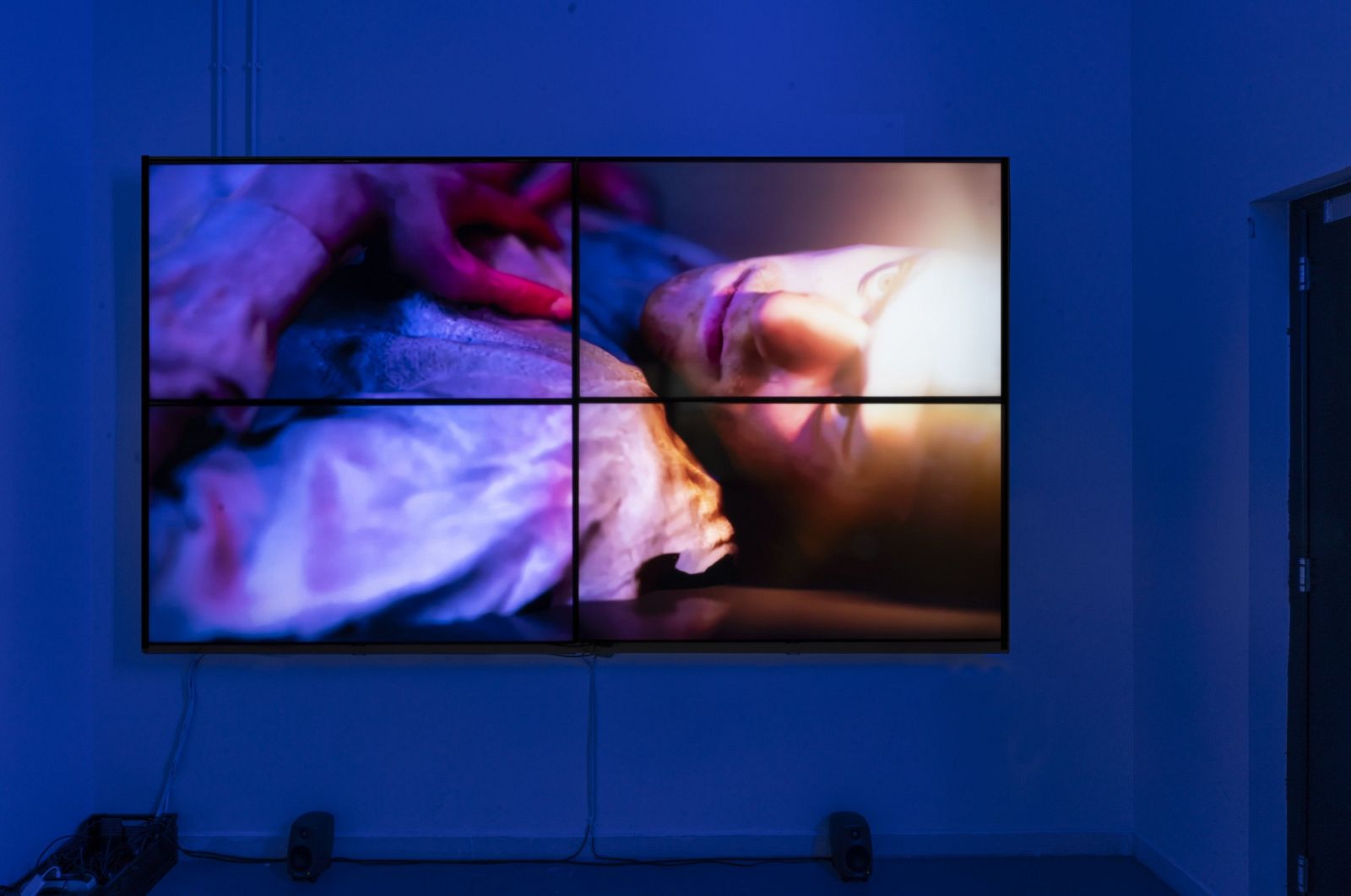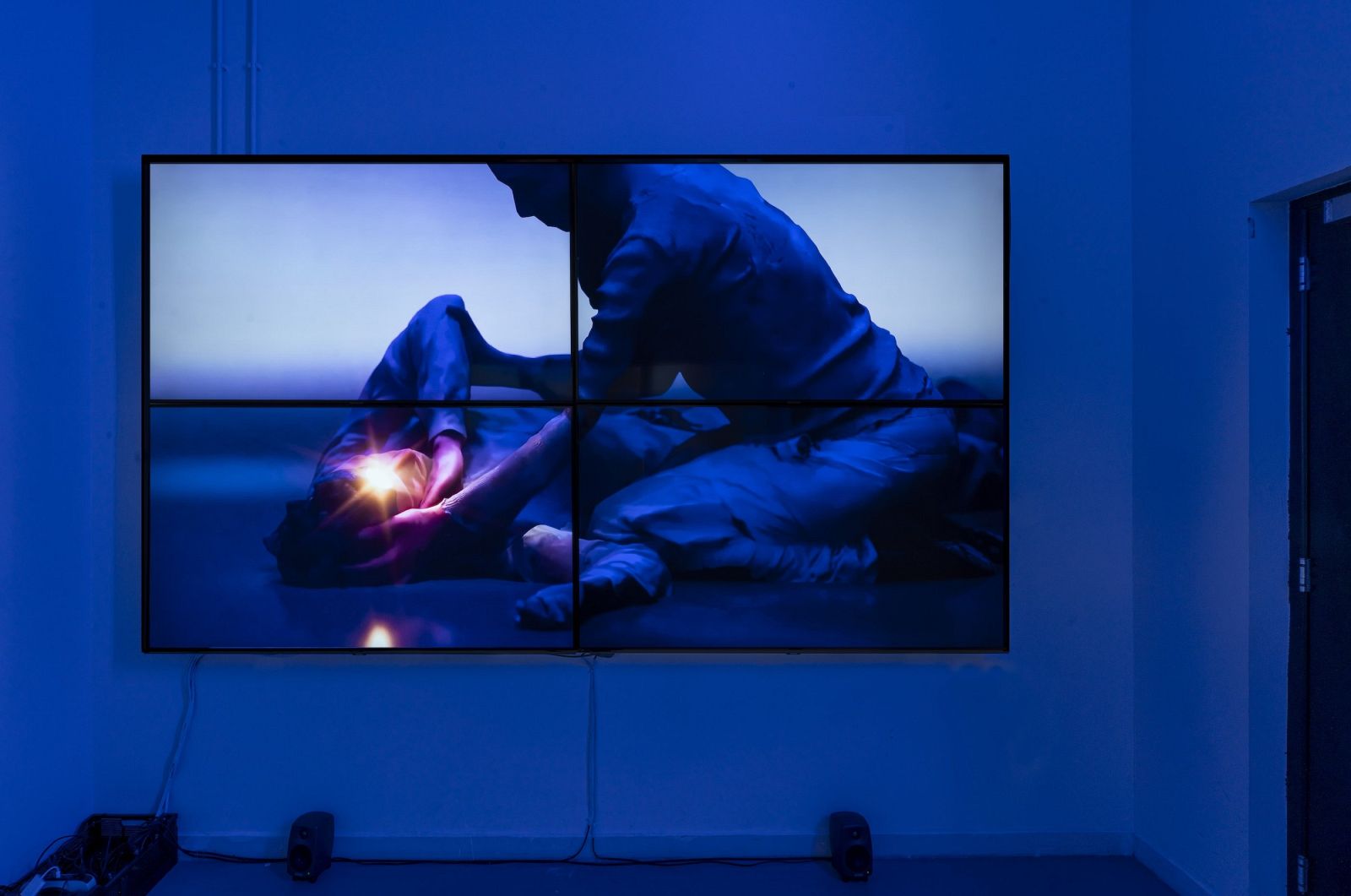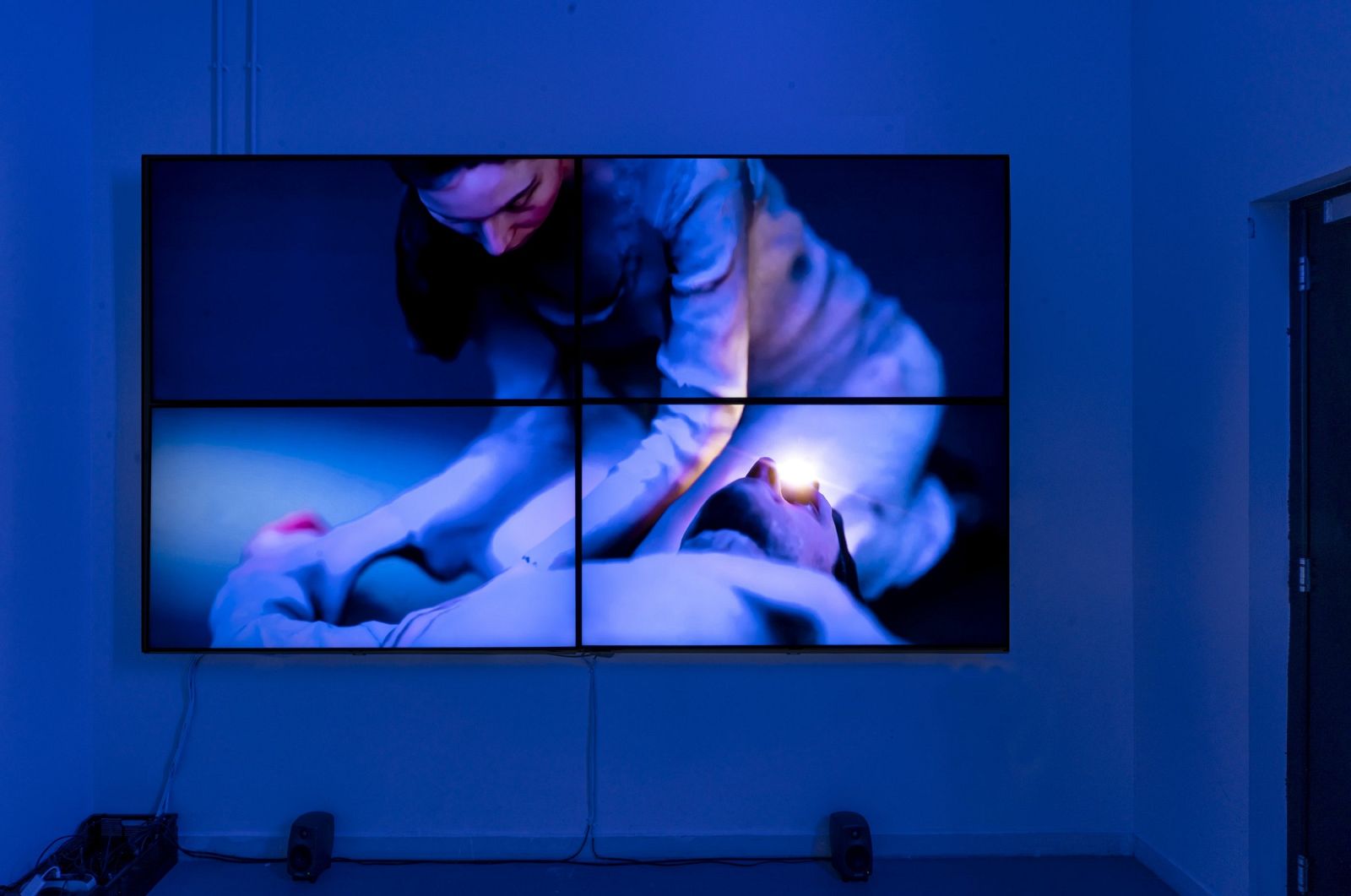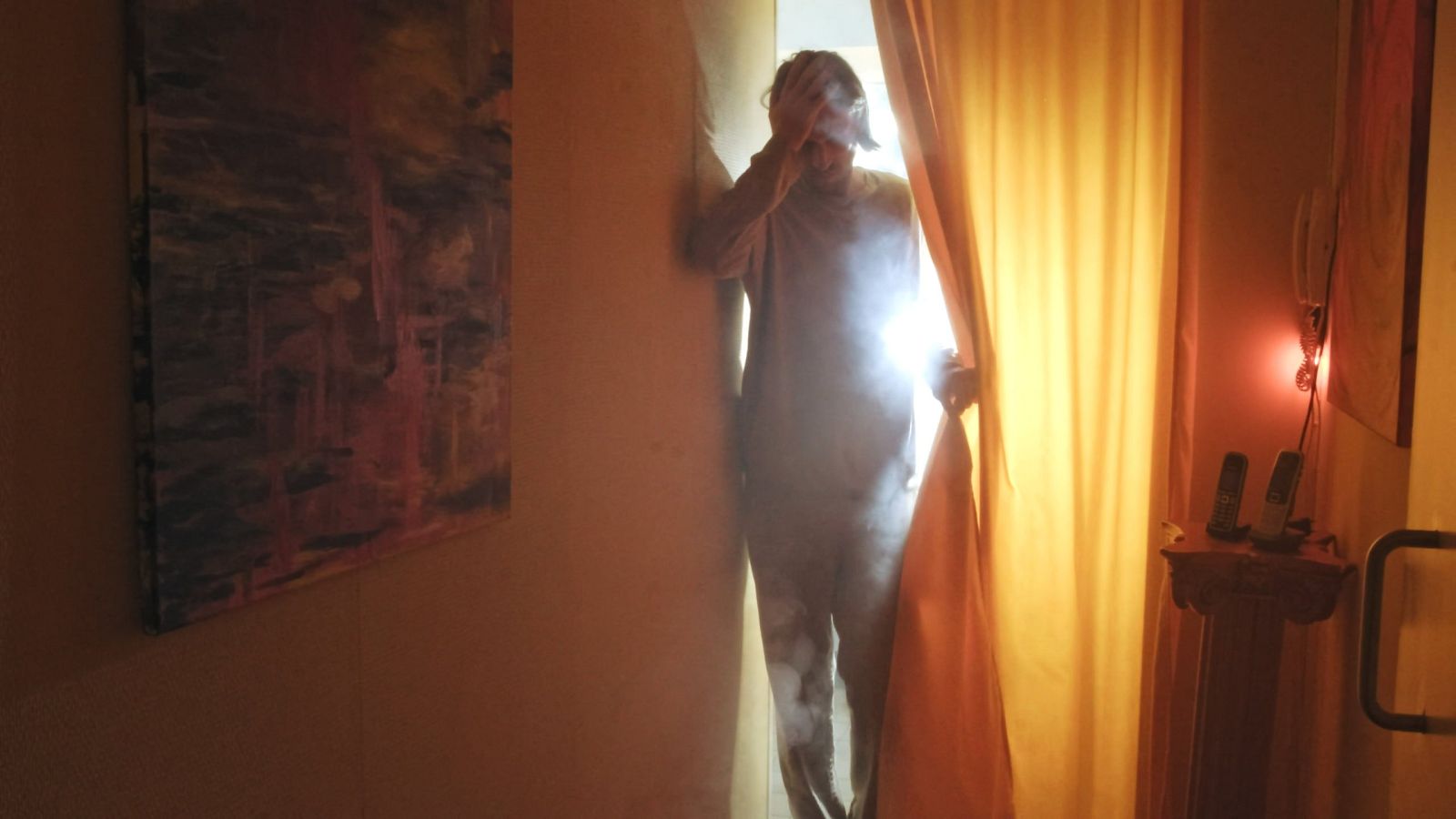
Yelim Ki
Keywords: Immersion, Installation, Light
"The Cell" originates from my early experiences within a glossolalia-speaking community, where language functioned beyond communication. I witnessed voices trained in ecstatic speech convey transcendental states through involuntary sonic utterances. These performances bypassed cognition to forge collective belief. I later recognized a striking similarity between this phenomenon and the way digital technologies “connect” us while creating profound isolation.
The work explores this overlap between divine communication and technological immersion in the contemporary media landscape. It draws parallels between the speech-like fluency of glossolalia and the subtle, often subliminal ways that screen technologies infiltrate perception. The work suggests an uncomfortable resonance between religious authority and digital capitalism, as both rely on our submission.
Through a cinematic space composed of screens, custom lighting, and sculptural assemblages from discarded materials, I present my interpretations of divine and systematic absorption performed within human disciplinary structures. As Crary notes, "being 'spellbound' in front of the cinematograph was both to be subsumed into a collectivity and to be separated from it in an immersive isolation."*
Two videos toggle at random intervals, suspending the viewer in a disjointed perceptual state where attention continuously shifts, never fully settling. The film features an automated montage of actors portraying an Amish carpenter and an angel intercut with 3D digital reconstructions. Programmed lighting synchronized with the video accompanies Morton Feldman's piano piece performed on six slightly detuned pianos.
The claustrophobic exhibition architecture with privacy glass windows invites viewers to contemplate their relationship with immersive technology. The work serves as a perceptual tool, reminding us that our bodies and minds are structurally engaged with the present moment of losing self.
*Jonathan Crary, Suspensions of Perception: Attention, Spectacle, and Modern Culture (Cambridge, MA: MIT Press, 1999)







